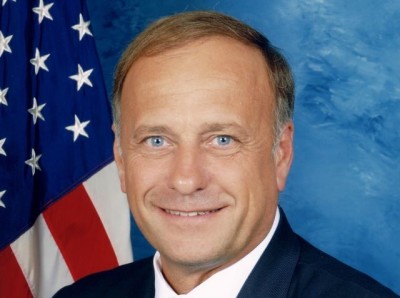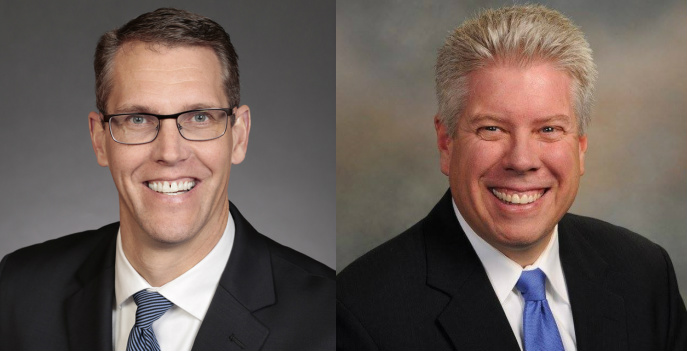The latest Iowa poll by Selzer and Co. for the Des Moines Register finds Governor Chet Culver’s approval rating at a new low of 36 percent. Only 34 percent of respondents said Iowa is headed in the right direction, while 57 percent said the state is on the wrong track. The poll was in the field from January 31 to February 3 and surveyed 805 Iowa adults, with a margin of error of plus or minus 3.5 percent.
Culver’s approval rating fell to 36 percent, with 53 percent disapproving. The Des Moines Register’s Iowa poll from September had Culver in positive territory, with 50 percent approval and 39 percent disapproval. The Des Moines Register’s November poll had Culver with 40 percent approval and 49 percent disapproval.
The Des Moines Register noted that since September, Culver’s approval among Democrats has fallen from 72 percent to 57 percent, while Senator Tom Harkin’s approval among Democrats was measured at 77 percent in both polls.
The economic recession is probably a major factor in Culver’s slide. Although the state’s eight leading economic indicators were measured in positive territory in December 2009 (for the first time since April 2007), employment remains weak. Iowa’s seasonally adjusted unemployment rate was 6.6 percent in December 2009, and Iowa Workforce Development found,
Compared to last December, the Iowa economy has lost 40,100 jobs. Manufacturing still leads all sectors in terms of losses, down 19,900 over the year. Trade and transportation and construction followed with losses of 7,900 and 7,700, respectively. Education and health services remained the most resilient sector, adding 2,600 jobs since December 2008.
The slow economy has caused state revenues to fall below projections, which prompted Culver to make a 10 percent across-the-board cut in current-year spending in October. Spending cuts are rarely popular with anyone.
Side note: I wondered last fall whether the scandal surrounding Iowa’s film tax credit, which broke in September, would hurt Culver. I was surprised to see that 61 percent of respondents in the Des Moines Register’s poll think the film tax credit is “good for the state.” The poll question didn’t mention how much the film tax credit has cost compared to the economic impact. I agree with economist Dave Swenson, who thinks the program was flawed from the start.
The latest Register survey also polled Culver against the four Republican challengers. (This portion of the poll, like the approval numbers, is in the print version of the Sunday Des Moines Register but hasn’t appeared on the website yet. I will update this post with a link when that becomes available. UPDATE: Here is the link.) The hypothetical matchups come from a subset of 531 “likely voters,” producing a slightly higher margin of error: plus or minus 4.3 percent.
Former Governor Terry Branstad remains the strongest challenger, beating Culver 53 percent to 33 percent. Bob Vander Plaats leads Culver 43 percent to 40 percent. Strangely, Culver trailed Branstad and Vander Plaats by slightly larger margins in the Register’s November poll, even though his approval rating was a little higher then. Culver barely beats the other Republicans, who are less well known. He leads State Representative Chris Rants 41 percent to 37 percent and State Representative Rod Roberts 41 percent to 36 percent.
Needless to say, it’s never a good sign when an incumbent governor is below 40 percent approval and barely breaks 40 percent against any challenger. Culver needs to make up ground this year in order to be re-elected. The right direction/wrong track numbers show that voters under 35 were more likely than the overall population to think things are going in the right direction, but most of the electorate in November will be over 35.
Culver has chances to improve his standing this year. If the state’s leading economic indicators continue a positive trend, the job market may improve. Also, spending on infrastructure projects supported by the I-JOBS state bonding initiative will pick up in the spring and summer. So far nearly $600 million in I-JOBS money has been awarded, but only $20.7 million has been spent. As the projects take shape, more Iowans will be employed and more people will see the benefits to their communities.
On the political side, Branstad hasn’t received much scrutiny from the media yet, but when the gubernatorial campaign heats up, his accountability problem may become more apparent. A hard-fought Republican primary will exacerbate the rift between moderates and conservatives. Some conservatives have already vowed not to support Branstad if he is the GOP nominee. More focus on the inconsistencies between candidate Branstad and Governor Branstad may help Culver’s standing with Democrats and independents.
Share any relevant thoughts in this thread.
UPDATE: The Des Moines Register’s Kathie Obradovich says Culver may as well start shopping his resume around, but John Deeth argues that Culver is not dead yet.
SECOND UPDATE: The latest poll commissioned by The Iowa Republican blog and the Republican Concordia group found Branstad leading Culver 57 percent to 29 percent and Vander Plaats leading Culver 43 percent to 39 percent. I don’t know much about the firm that conducted that poll, and I would put more stock in Selzer’s numbers for the Des Moines Register.
THIRD UPDATE: The Iowa Democratic Party’s statement on this poll is a bit odd. More on that after the jump.
To depressed Democrats out there, I offer six silver linings of a Branstad candidacy.
FINAL UPDATE: This poll prompted Swing State Project to change its rating of this race from tossup to lean Republican.
Continue Reading...













